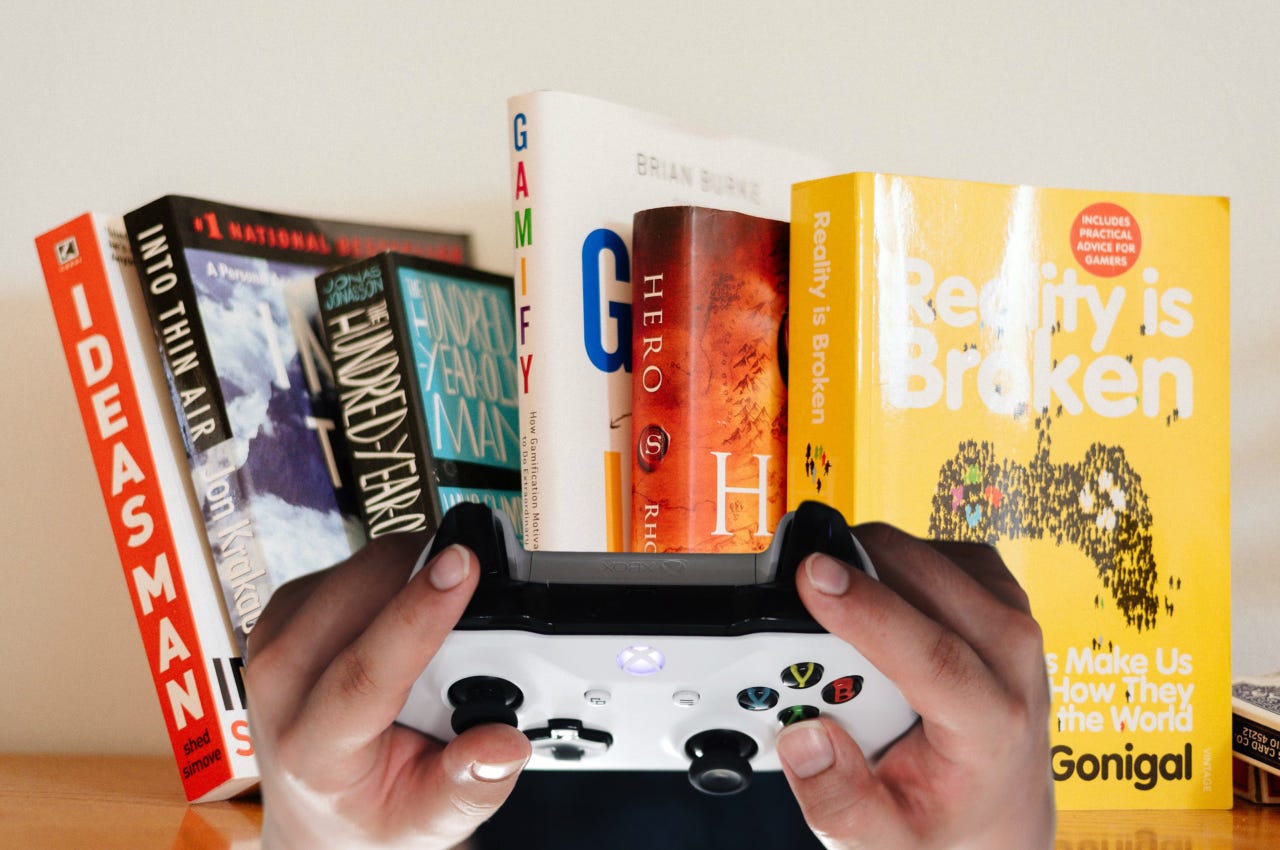Succinct Shots #4: Reader vs. Gamer
Trying to understand my personal game theory of disinterest in video games
This is the start of a series called Succinct Shots. It’s based on a practice of stream-of-consciousness writing. It’s my own variation on The Artist’s Way Morning Pages, a journaling technique to trigger creativity. Most of these are from a reflective period and sway towards self-help sentiments.
Is reading addictive? Are playing video games the same type of addiction? I am not a gamer. I don’t play online games. I was the last person on earth to play Pac-Man when it was all the rage. So I can’t really compare video games to books.
But I can sense when my brain is not stimulated and seeks out a new book. There is something missing. A void that grows stronger without the words to fill it up. It is not FOMO (Fear Of Missing Out). It is a weakening of the soul. Too much time has passed without the nourishment of an alternative view or the education on a topic. A sense of emptiness occurs that feels like a vitamin deficiency or malnourishment.
Do video games cause the same emptiness? Are they just time fillers? Or do they actually stimulate brain cells past the pleasure point of immediate satisfaction. I didn’t even like to play card or board games either. So I suffer from some sort of deficiency for that kind of stimulus.
But books offer a chance to dive in and linger for concentrated periods of time. Video games are completed within minutes. Books are not done for days. That allows the message to soak in and absorb into your pores.
Books offer anticipation for more excitement or learning. Do video games do the same and make you long for the adventure? Or is the adventure just a repetitive exercise with more or less known consequences played out in different pathways.
Reading uncovers treasure, or at least the opportunity to find it at every turn of the page. The author has no clue which nuggets will appeal to you. A video game designer is usually clued in on all the variations available. These moments of discovery are powerful; they can become part of your knowledge base.
A game offers added information to play the next round better. A book offers education to take along with you after you finish. This is probably why games do not appeal to me. I don’t want incremental change to reach the next level. I want an understanding to fill in the gaps of my life.
It sounds elitist on the surface, but I’d rather develop my own capabilities than to give that power to a game character. When you switch off the electric box, it just turns dark. When you close a book, the important parts stick with you.
And that leads to playing the game of life better at any level.
[Post Note: Calling on all gamers to set me straight.]



I am both a reader AND a gamer, so I think I can offer a fair reply to this question. For me, gaming offers a sense of accomplishment, emotional joy, a deeper understanding of the world, as well as the feeling that I had a hand in shaping the gaming world. Here's the thing, though. There are MANY different types of games just as there are many different types of books. A cookbook, for instance, may give you a tiny insight into the real world, but it's not going to infuse you with a wealth of knowledge. On the other hand, a fiction novel will infuse you with a sense of empathy, though it's history and science may be way of from that in the real world. Everything is speculative.
Maybe cards and Pac Man didn't stimulate your emotionally cognitive side. They don't stimulate mine, either. They are the cookbooks of the world. A challenge to test your skill and get better with practice. But while they may be a simple games, they allow the player to stretch their thinking muscles and solve problems, develop hand-eye coordination, and the ability to plan ahead. Also, just like a book, when you stop finding joy in it, you can stop playing and find something DIFFERENT. There are a LOT of different types of games.
Role Playing Games (The Witcher, Baldar's Gate, Myst, etc) and MMORPGs (where you play online with others and create your own story) that offer a story for a player to invest themselves in. These are your fiction novels and they can be just as deep as any novel out there. They can also take years to finish (yes YEARS.) Some games have stakes that pack a huge emotional punch far beyond what a book can do. If a character dies in a novel, it's sad and often unexpected. But if YOU are the cause for a story character to die in a game, it's devastating. Some games allow you to "go back in time" to fix this, but some games don't. Your actions, in this regard, have consequences that can feel very real.
Lastly, gaming does allow you to find hidden treasures within their digital worlds. It's been a long-time trend for developers to HIDE treasures hoping you'll find them (I'm looking at you, Quest for Glory,) and sometimes you'll find things a designer didn't intend to have meaning. But that's the magic of creative mediums, which both books AND games fit under.